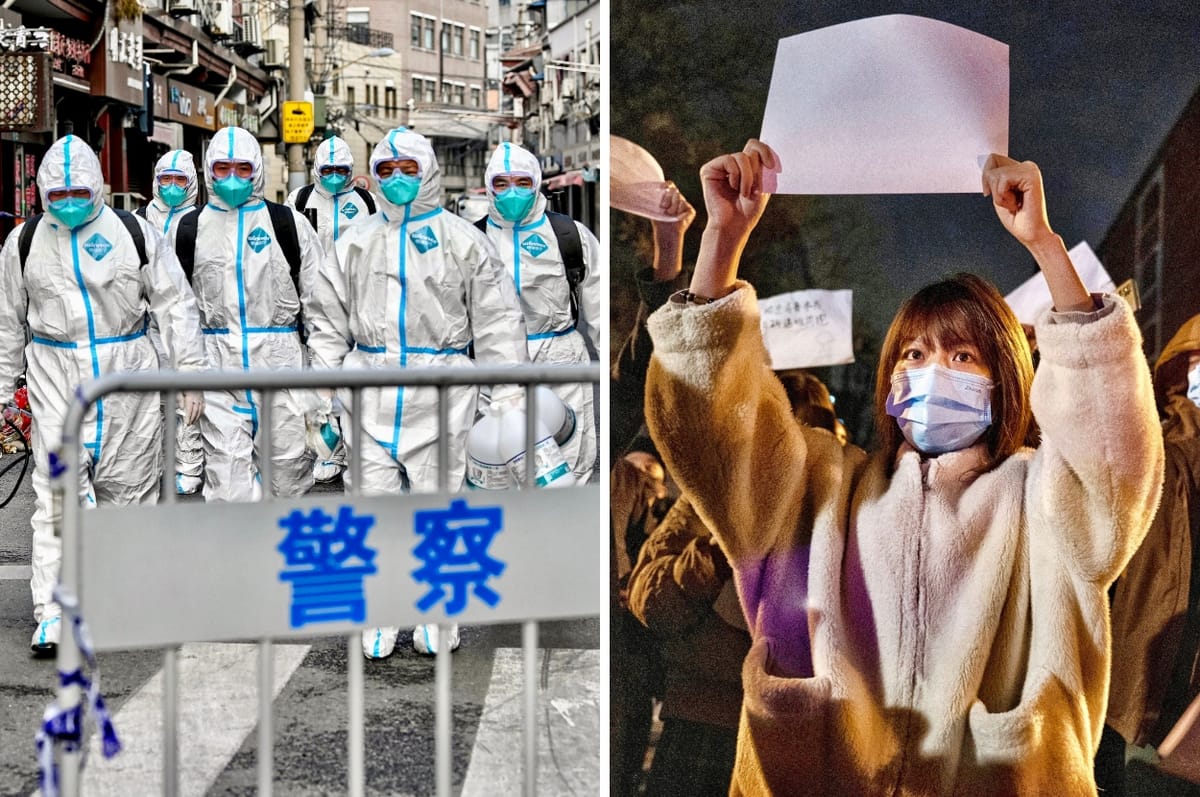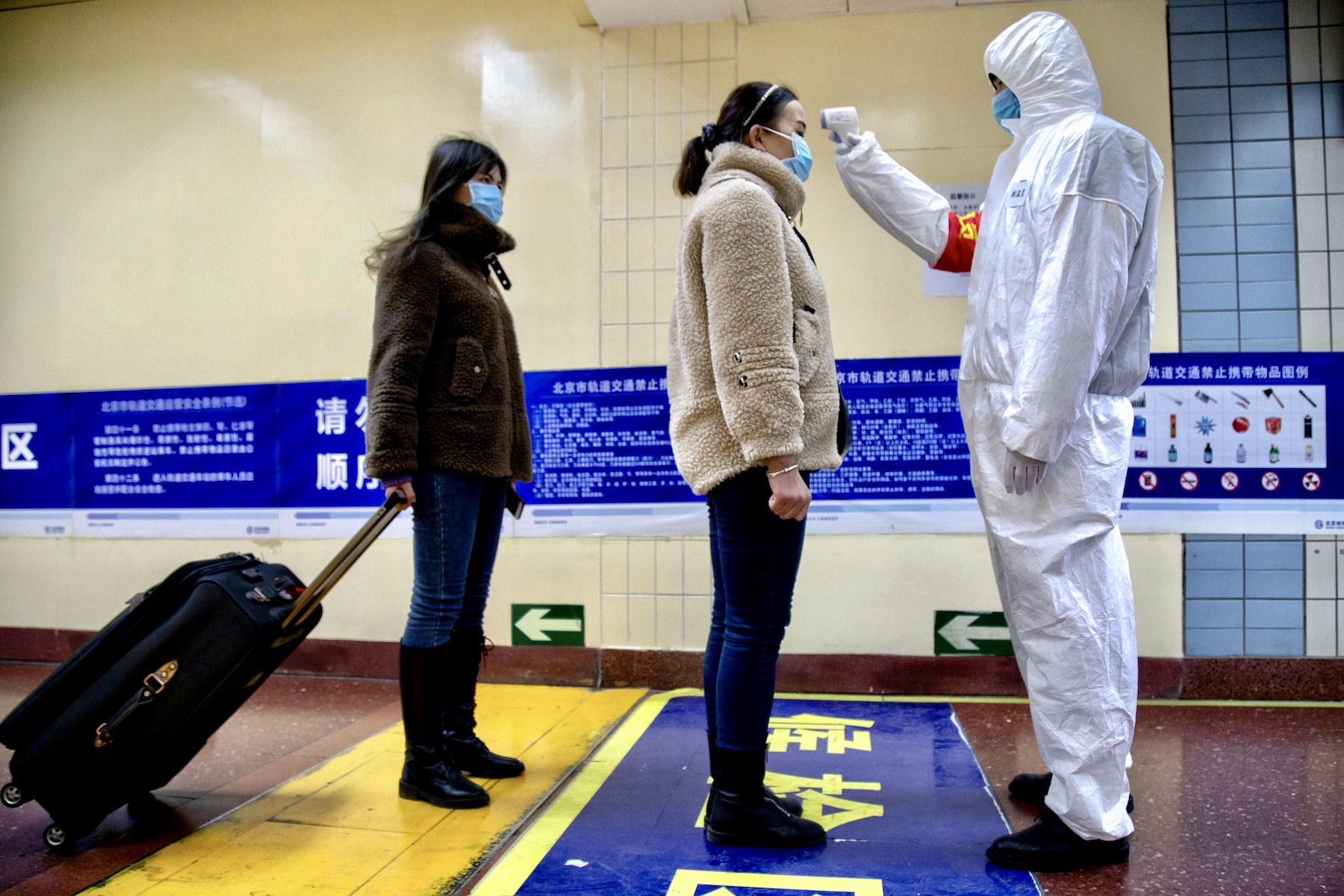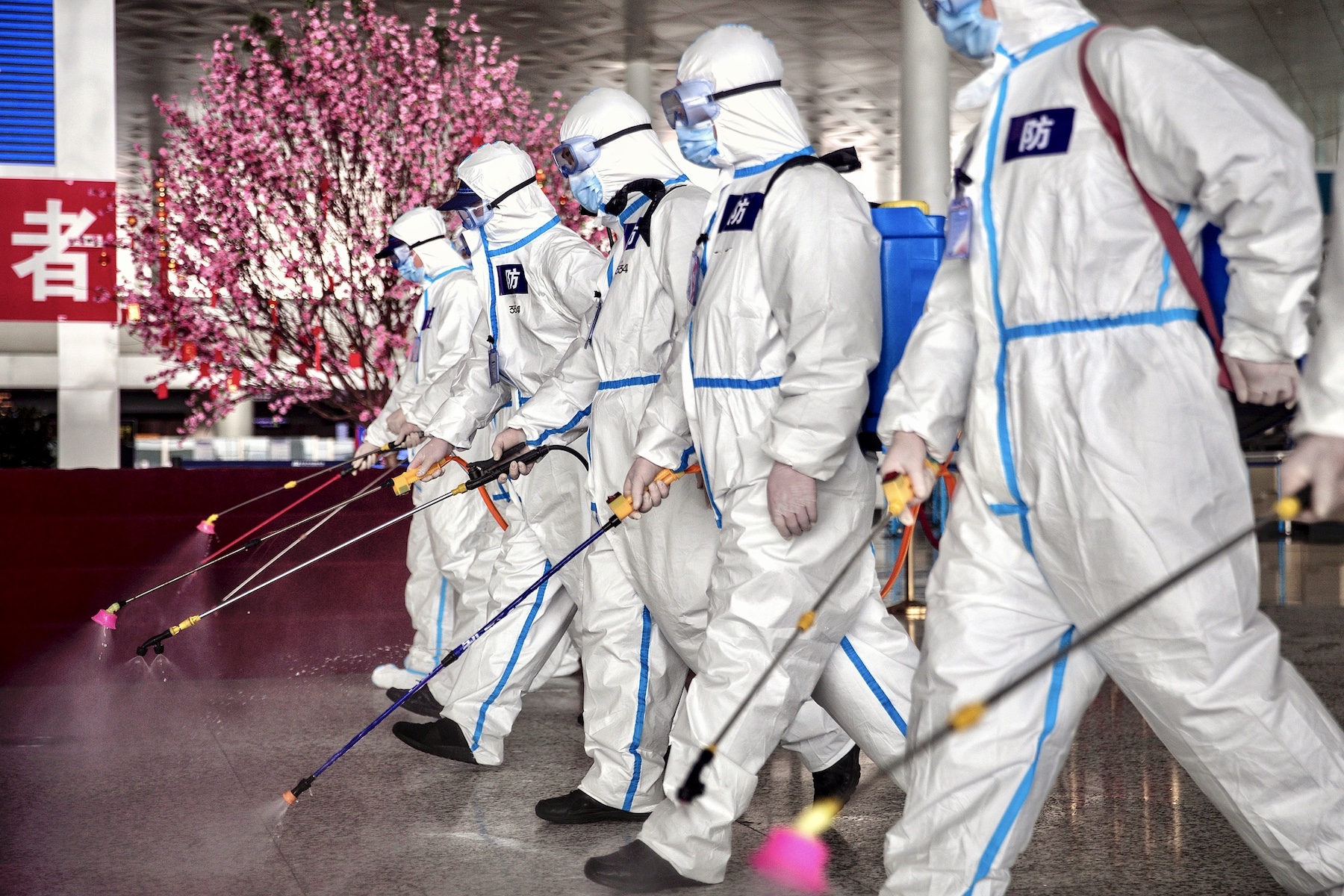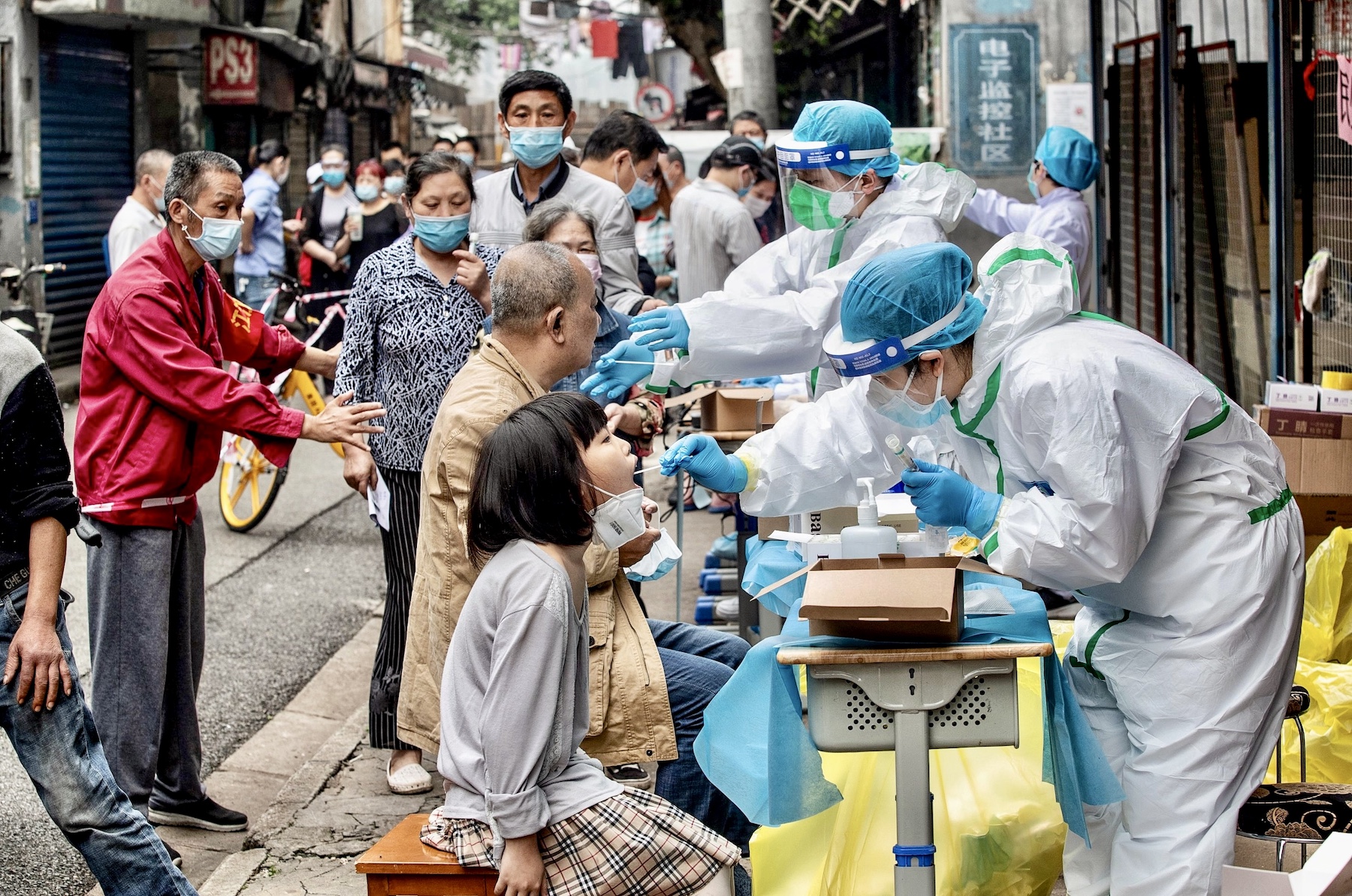China Has Relaxed Some Of Its Harshest COVID Restrictions After The Unprecedented A4 Revolution
China has eased some of its most severe COVID policies after unprecedented protests swept the country following the death of 10 people in quarantine in Xinjiang in a fire at an apartment complex.

China has eased some of its most severe COVID policies after unprecedented protests – known as the A4 Revolution – swept the country following the death of 10 people in quarantine in Xinjiang in a fire at an apartment complex.
The government has announced that people who test positive for COVID-19 and have mild or no symptoms will no longer need to quarantine at quarantine camps.
People will no longer need to show a QR code indicating their health statuses to enter most venues and can travel inside the country without needing to show PCR tests and health codes, according to the BBC.

Lockdowns will target more specific areas such as buildings or floors, rather than an entire neighbourhood or city, and people will undergo a five day quarantine if no new cases arise, according to China’s national health commission.
New regulations will also ban the blockage of fire and emergency exits during lockdown, which had previously prevented individuals from leaving their buildings in emergency situations.
Under China’s “zero COVID” policy, millions of people across the country had been forced under lockdown for months.

Families were separated and people were removed from their homes, according to the New York Times.
Videos circulating in Chinese social media have shown authorities placing entire factories under lockdown, preventing people from leaving, and even dragging people to quarantine camps, some of which people said had poor living conditions.
The fire incident at an apartment complex in Xinjiang’s capital, Urumqi, on Nov. 24 sparked public sadness and anger, and protests erupted across major cities such as Beijing and Shanghai, with people calling for an end to China’s zero COVID-19 policy.
The protests against the government, which are rare in China, became one of the biggest acts of civil disobedience the country has seen since Tiananmen Square.
The news comes as the country is facing its biggest wave of infections at more than 30,000 cases a day.
Between Nov. 24 and 26, authorities had slowly started to ease regulations and lifting lockdowns in certain cities, including Urumqi.

With the tougher restrictions starting to ease, authorities have emphasized the need to speed up vaccination efforts.
In October, China’s most populous city, Shanghai, started rolling out the world’s first inhalable COVID-19 vaccine to help lower vaccine hesitancy.





